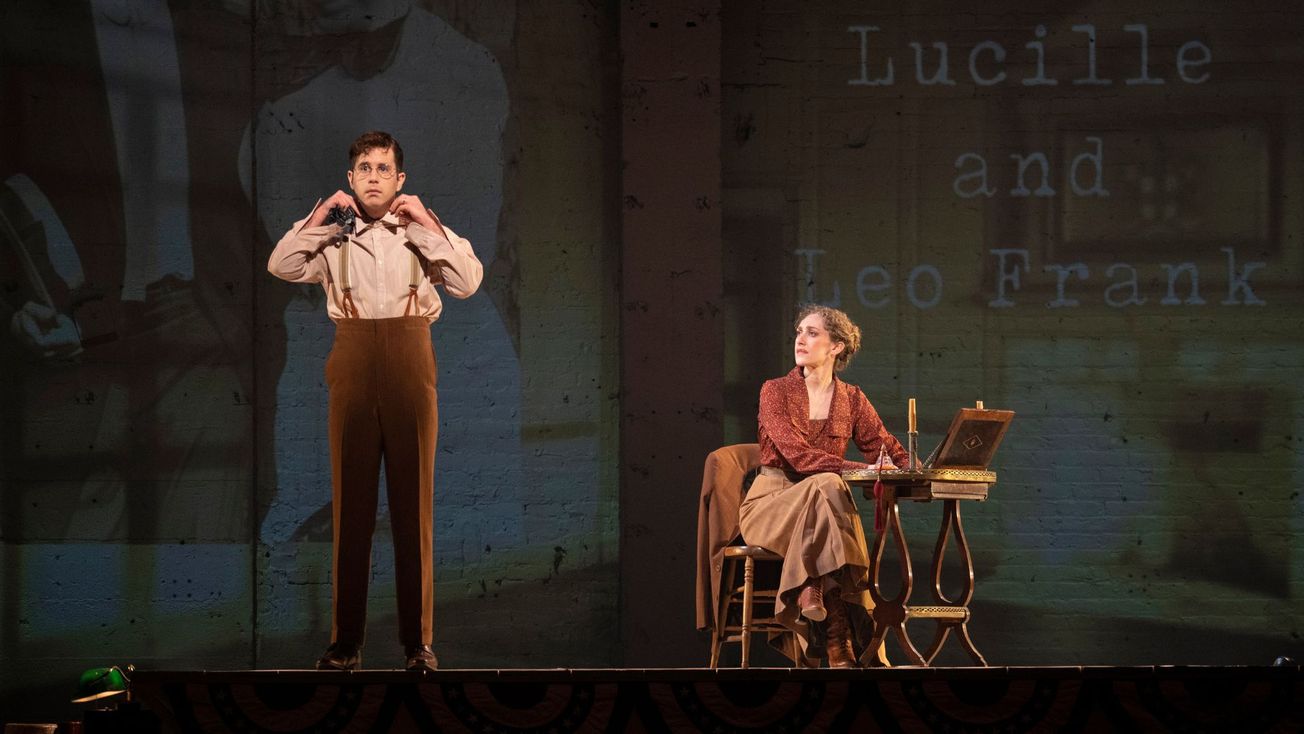On January 6, 2021, Kevin Seefried traveled 100 miles to join thousands who stormed the U.S. Capitol, and the image of him armed with a Confederate flag became synonymous with insurrection. He and his fellow “countrymen” ripped the pursuit of justice out of the law’s hands and took it into their own. About a century prior, in 1915, a mob of white Georgians drunk on Confederacy did the same — kidnapping and lynching Leo Frank, a Jewish man, after his wrongful death sentence for murdering a 13-year-old girl was reduced to life in prison. Leo’s gruesome story plays out on the Bernard B. Jacobs stage (direct from its City Center run) in director Michael Arden’s affectingly devout revival of the 1998 Broadway musical “Parade.”
Since history is on parade, let’s go back a little further. Confederate troops firing on Fort Sumter in 1861 marked the beginning of the American Civil War. Scholars debate the complex causes of that war but are unified in its result: In April 1865, the South lost. Forty-eight years later, when “Parade” begins, that loss is distorted into a triumph by a frenzy of white Atlanta citizens at their annual Confederate Memorial Day Parade. Southern denial of this caliber required a heightened level of white self-righteousness — a virtue threatened by foreigners, Northern industrialists and educated men. Enter, Leo Frank.


























































